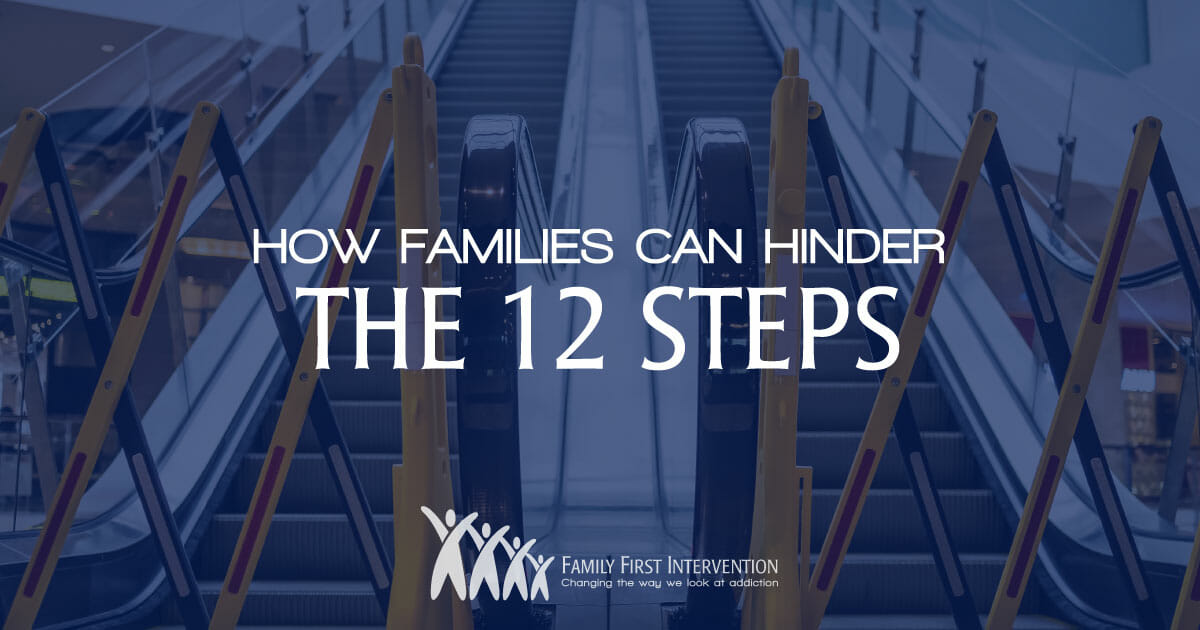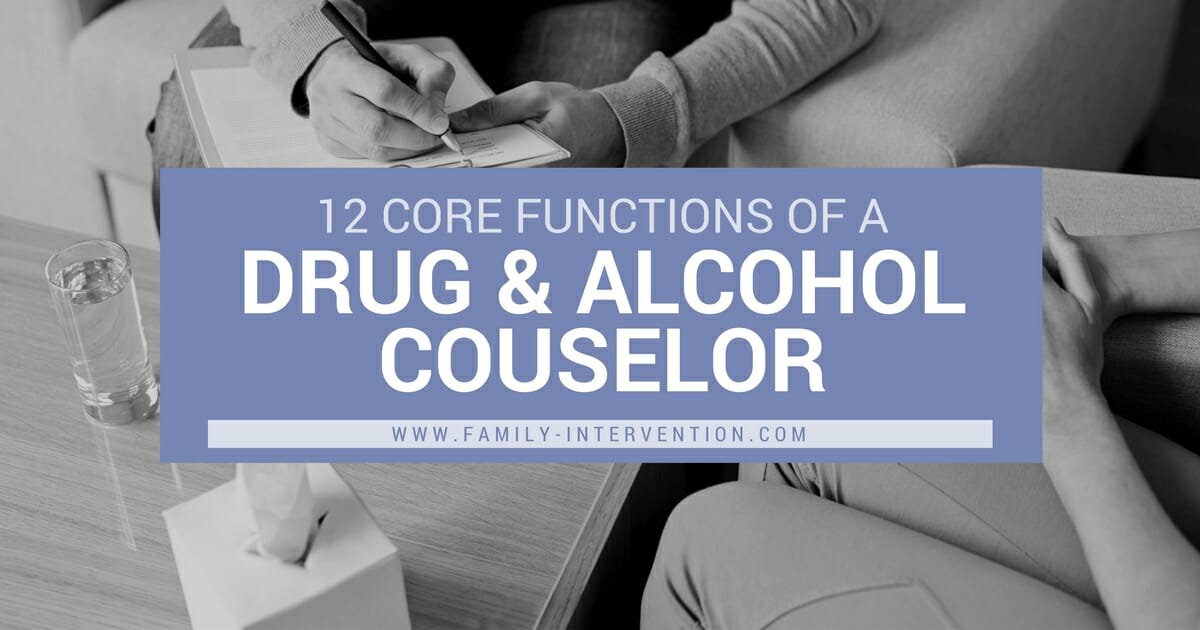Search by category, archive or keyword

In this blog, we’ll look at the following:
- What is an intervention?
- Addiction and Mental Disorder Intervention Program Outline
- S.A.F.E.® Intervention Program for Family Recovery
What is an Intervention?
It is not uncommon to believe that an intervention is merely a speech of coercion or negotiation between a group, such as a family and friends, and the intended patient using alcohol or drugs or experiencing mental health disorders. Considering this to be the nature of an intervention has sometimes given interventions negative beliefs. It has caused many people who are not substance use or mental disorder professionals, such as family members and friends, to attempt an intervention themselves. Most people are unaware that intervention is a clinical instrument with clinical explanation and definition. The Merriam-Webster Dictionary doesn’t help by including part of its definition, which refers to a confrontation between friends, family members, and the person with a problem. The part of the Dictionary that is relatable to the clinical definition is:
“The act of interfering with the outcome or course, especially of a condition or process (as to prevent harm or functioning)”
An intervention program is the curriculum surrounding the strategies of intervention instruments.
The clinical definition of an intervention is:
Functional analysis of pressing needs, client motivation, selecting target behaviors as goals for change, choosing the intervention instruments to achieve the desired goals, choosing measurable outcomes, and setting up follow-up times and treatment plans.
Integrated Treatment for Dual Disorders, A guide to effective practice, pp. 73-79,
Mueser, K.T., Noordsy, D.L, Drake, R.E, & Fox, L. 2003
“A Functional Analysis systemically examines a behavior’s positive and negative consequences and alternatives.”
“The problem is the belief that the short-term positive consequences of a behavior have a stronger influence than the long-term negative consequences.”
“The short-term belief that the benefits of using alcohol or drugs overpowers the long-term belief of the negative consequences.”
Integrated Treatment for Dual Disorders, A guide to effective practice, p. 66,
Mueser, K.T., Noordsy, D.L, Drake, R.E, & Fox, L. 2003
Intervention strategies are used throughout the day in treatment centers, hospitals, detoxes, etc. Interventions are used to move patients through the stages of treatment and the stages of change and to move them from sustained talk to change talk. Sustained talk is when the patient verbalizes staying the same and not talking about improvement; change talk is the opposite. Intervention strategies for families are implemented before the patient enters treatment to help the family commit to the intervention program. As you will repeatedly read throughout this article, the family will find it much more challenging to move from sustained talk to change talk than the intended patient during the face-to-face part of the intervention and while in treatment. In other words, families are far more challenging to help than their loved ones for whom they call about getting help. Moving someone from sustained talk to change talk requires motivational interviewing, an evidence-based strategy professionals utilize.
As you can see, families who say they are just going to talk to their loved one or do the intervention themselves are not doing an intervention at all. They are merely talking their loved one into treatment, nothing more, nothing less. A non-professional who is emotionally attached and biased, not to mention acting out a dysfunctional family role, is incapable of performing an intervention.
Most interventionists build their intervention programs or curricula around the speech with the intended patient and do not professionally understand the real meaning of an intervention, the stages of treatment, or the stages of change. There is a clinical protocol for each stage of change and stage of treatment that requires intervention. For a family or non-professional to believe they can do an intervention when interventions happen constantly through the stages of change and treatment is not valid, accurate, or practical. Professional interventionists should be focused on the first two stages of treatment, which are Engagement and Persuasion, and the first three stages of change, which are Pre-Contemplation, Contemplation, and Preparation. The treatment center will focus on the two remaining treatment stages, Active Treatment and Relapse Prevention, and the remaining two stages of change, Action and Maintenance. Professional intervention companies such as Family First Intervention assist and collaborate with treatment centers and patients’ families and assist them through all the stages of treatment and change. We do this with our S.A.F.E®. Family Recovery Coaching. A family cannot do this, and very few interventionists can or know how to do it.
The easiest part of the intervention program is the short moment when the family, the intended patient, and the interventionist meet and communicate. It is the part of the intervention program that families fear the most. As much as we stress that an intervention is far more in-depth than face-to-face communication, this part of the intervention is crucial. The difference is that communication, or speech, is not between the family and the intended patient but between the professional interventionist and the intended patient. When communication is required from a family member, the interventionist will bring them into the conversation in a strategic and preplanned way. Families do not realize the difficulty or the inability to communicate effectively. The intended patient is rarely interested in hearing from the family who they resent or internally blame for their problems. That is how most people with substance use and mental disorders think: that it is everybody else’s fault, starting with those who love them the most. Whether or not it is true, that is how they think and feel and how and why they justify their problems. Things rarely go well when a family confronts that intended patient without a plan, strategy, or professionally guided intervention letter. The letter will be the primary communication between the family and the intended patient.
Professional intervention programs offer much more than someone coming to your home to talk with your loved one and inspire them to accept help. Intervention programs require strategic planning and conversation on the front end and after the intervention, with treatment center collaboration and face-to-face interaction between family, friends, the intended patient, and the interventionist during the live intervention. During the intervention, the interventionist is with the family in person; the meeting on the first day is with the family only before meeting with the loved one in need of addiction and mental health help. It is important not to let your loved one know of this meeting unless agreed upon with your professional intervention team. The discussions and conversations before the face-to-face intervention include in-depth psychoeducation and the understanding of addictive and mental health behaviors as well as family roles and behaviors. Families who intervene themselves do not know how to do an intervention or even understand all this is needed to call what they are doing an intervention. In other words, families can only fix themselves or even see their role in the problem with a professional helping them. Even if a family were to assist in talking their loved one into accepting help without an experienced interventionist, where would they go for treatment, and who would provide the functional analysis and guide them through all the stages of treatment and change?
A professional intervention program will allocate most of its resources to the family before and after the intervention. A person who performs a paid 12-step call and calls themselves an interventionist will put all their energy and resources into getting the person into treatment. An intervention program that does not focus on family dysfunction and roles that are preventing the intended patient from getting well is not an intervention program; it is a paid 12-step call.

Addiction and Mental Disorder Intervention Program Outline
Our intervention services offer families and their loved ones a structured intervention program. One of the more difficult parts of our program is getting families to the program. Most people who call to inquire about our services are overpowered or outnumbered by other family members who feel an intervention wastes time, will be ineffective, or believe they can do it themselves. If you have read the content above, you should know by now that doing the intervention yourself is impossible because the do-it-yourself route or method is not an intervention but a conversation or speech.
Based on the situation, professional interventionists offer a specific protocol to families to increase the likelihood of a successful outcome for an intervention program. There are many reasons for this, and none more significant than keeping your family focused so they do not become more overwhelmed mentally and emotionally than they already are. Many families prefer to talk about their loved one, the intended patient, and the treatment center they will be going to. Several questions arise like what if they say no, what are your success rates, is this covered by insurance, who should be there, etc. If you allow us to explain the intervention program and protocol and trust the process, you will be better off than you are now when this is completed. Starting in 2005, we made our mistakes early on. Our intervention program has been modified, tuned, and perfected. Now, while nobody or nothing is perfect, our intervention program is structured in a way to make this as less stressful as possible and to prevent you and other family members from making it more complicated and stressful for themselves, other family members, and their loved one who is the intended patient. Families will always, yes, an absolute, always have at least one family member, often more than one, who will fight the process and make this more complicated than it has to be for the others. The reason is that the family has become accustomed to chaos, confusion, and drama at the hands of the intended patient and the acquired dysfunctional family roles.
Most interventionists are sole operators, meaning they do not have a team or support staff. Some may have one or two people who assist, but very few, if any, offer the support and attention needed for a family. There is no intervention program for interventionists of this type. An intervention of this type only involves someone coming to your home to speak with your loved one after briefly interacting with the family. Most of these interventionists are great at what they do. With a passion for helping others and a story to tell, many successfully inspire your loved ones to come with them to treatment; that is all they do and are capable of doing. Remember, that is not an intervention but a paid twelve-step call. The service you are paying for when you go this route is a free service offered by twelve-step groups like Alcoholics or Narcotics Anonymous. What an intervention program should look like stems from the functional analysis explanation and can only be carried out by a team of professionals and not a one or two-person speech team are the following:
- Initial Call – The first caller is offering to inquire about a loved one using alcohol or drugs or experiencing mental health concerns. The goal at this point is to assess the caller’s needs and determine who else in the family is involved. It is crucial because if we can not get the entire family together for a consultation, getting the rest of the family together for an intervention may be challenging. Unbeknownst to most people, there will always be family members who will sabotage or talk the others out of helping their loved one. The phenomenon is caused by the acquired dysfunctional family roles and the benefit received from the situation remaining the same or the fear avoided by not confronting the problem.
- The conference call – Once we get the family on a consultation call, we can discuss the solution. The problem most families face here is the inability to let go of their dysfunctional role, maladaptive thought processes, and the unwillingness to let go of old ideas. To move forward, families must do what they expect their loved ones to do first: let go of the ineffective solutions so they can adopt effective ones. The most challenging part of the intervention program is the conference call. It is far more difficult to help a group of people who can not see their problem than to help one person accept help for a problem they know exists.
- Agreement to do the intervention – Once a family agrees, payment arrangements are made, and our staff gets to work. An assessment is performed, and a treatment plan is suggested. The interventionist does not depart for the intervention until everything is set up. In other words, the family will know where their loved one will go, out-of-pocket costs for the treatment facility, and what to expect during and after the intervention.
- Family Day Preparation – Upon arrival, the interventionist will sit with the family and prepare them for the intervention. In-depth psychoeducation on family behaviors, enabling, codependency, and addiction behaviors are just a few of the topics covered. Families will prepare their letters and discuss consequences, accountability, and boundaries to be applied should their loved one decline help. The interventionist will walk you through the expectations for the next day.
- Face-to-Face Intervention – The interventionist, family, and loved one will meet. The interventionist will orchestrate and bring the family in to read their letters. A request for help is offered, and the conversation will begin. The intervention will end with the interventionist escorting your loved one to treatment or moving to a consequence and refusal of help stage. There are NO negotiations. The family will understand that if their loved one wants to negotiate a different option, they will do so on their own, and the family will stand firm on their offer of help and boundaries. Families will move to a detachment phase and allow their loved ones to live their decision until they change their minds and accept help.
- After the Intervention – Your family will be moved into our Family Recovery Coaching Program. We devoted an entire section to this part of our intervention program.
The breakdown above is a quick overview of our intervention program. In our Intervention Services section, we have provided an in-depth explanation of each step of the intervention program along with many answers to questions, accusations, comments, and considerations families have. The information can also be helpful for those considering an intervention or who are on the fence about an intervention, as it provides information for families to look at things differently. The information is at the top of the website, on the intervention services tab, and to the right of our Family First Intervention logo. You can also access the information by clicking here.
S.A.F.E.® Intervention Program for Family Recovery
We will spend more time working with a family to schedule an intervention than at any other part of the process outside of the three-month S.A.F.E.® Intervention and Family Recovery Coaching Program.
The easiest way to examine our Family Aftercare curriculum is to consider the functional analysis…
“of pressing needs, client (family) motivation, selecting target behaviors as goals for change, choosing the intervention instruments to achieve the desired goals, choosing measurable outcomes, and setting up follow-up times and treatment plans”
…for family members.
Scheduling an intervention is the most challenging part of the intervention program process. Families will have more excuses and objections than their loved ones will have at the intervention. As dysfunctional family roles, maladaptive coping mechanisms, biased viewpoints, selfishness, and emotional attachment control the brain, families are almost oblivious to what they are doing and why they are doing it. The hero sibling, often the oldest sibling, can not see why they are sabotaging the other family member’s efforts. The codependent martyr spouse can not see how their role as a victim prevents them from helping their spouse who needs help. The primary enabler can not see how they hurt the whole family. All the family excuses stem from wanting to hold onto their old behaviors. The dysfunctional family roles can not comprehend anything other than what they have been doing and how they have been doing it. The hero wants to control everything, the martyr wants to stay in the spotlight of a victim, and the enabler wants to feel needed and have a purpose. All this happens by sacrificing the intended patient’s ability to receive help. Families are waiting for their loved ones to hit bottom, and they stand in the way of the bottom being hit or felt.
The part of the Intervention that involves the conversation with the intended patient takes very little time to complete. For every hour we spend with your loved one needing addiction or mental health treatment, we will spend at least 3 hours trying to help the family to the point of allowing an intervention to happen and with much more resistance. After the intervention is set up, we will spend more time with the family on the first day than with the intended patient at the intervention. After the intervention, we will spend all our time with the family and very little, if any, with the intended patient. Ultimately, the time spent with family vs. intended patient is approximately 10:1. Families do not realize how much they have prevented themselves and their loved ones from reaching a solution. The environment, one of the number one predictors of outcomes and includes the family, must be addressed. Regardless of the leverage or level of enabling, the family has countless things to change to increase the likelihood of a successful outcome for themselves and their loved ones.
Once the face-to-face portion of the intervention is complete, the family will move into our S.A.F.E.® Intervention and Family Recovery Coaching Program. The family will not see their dysfunction greater at any other time than in our aftercare program. Regardless of the outcome, the family will struggle with it. Most families will have a more difficult time during the aftercare of our intervention program when their loved one has accepted help and is in treatment rather than when they refuse help and come up with excuses to avoid treatment. A refusal of help is a known role for the family. Families will struggle with holding boundaries and fighting off their loved one’s manipulations, of course, and not nearly as great a struggle as they have with the change that comes with their loved one being in treatment. After the intervention, the family dysfunctions and roles will attempt to find their way back to health, and not without a psychological fight. The better the patient does, the more complex the struggle for families will be, but why? The answer lies in the science of how family roles have adapted to the dysfunctional family system driven by the enabler and the substance user or loved one with mental health disorders. The hero is frightened that the loved one will get better and take away their achievements as they get better. The martyr is terrified they will no longer attract empathy or sympathy and lose their role as the victim who suffered the most. The martyr also fears their spouse will no longer love them or they will lose control of their role in the family if the other improves. The enabler who sets off the chain reaction of family dysfunction is terrified of how they will survive once their loved one gets better and they are no longer needed and lose their purpose. When we try to explain the breakdown in the family system to families, we are called salespeople who are just out for the money.
“The only salespeople are the intended patients who have created this mess and the family members who fight to hang onto the mess.”
Families can not escape the science and reality. They can disagree with us all they want, and what we are saying is true. Families are essentially, in part, the problem. They are not guilty of intentionally choosing this path but are on it. This path is unavoidable; the only way out is to change the family’s role and behavior first. Once this happens, the environment changes and the intended patient can see things differently.
Our aftercare program makes Family First Intervention different from any other intervention program nationwide. When we started our S.A.F.E.® Intervention and Family Recovery Coaching Program, you could not find the word family on any interventionist or treatment center website. Almost every interventionist and treatment center has now included family recovery and programming on their websites, and very few can deliver or will deliver what they say. We were glad we started a trend and wish others would provide a product that helps families in the way we do. Our curriculum collaborates with treatment centers. While the patient is in treatment, families are in treatment with us. Professional collaboration with the center helps us and your family increase the likelihood of a successful outcome for your family and your loved one. Your family will need a professional more than ever after the intervention. We hope you understand the importance of this when considering which intervention program you should choose. Anyone can say they are an interventionist, and very few can deliver what an intervention or intervention program is.
An intervention is not about how to control the substance user; it is about how to let go of believing you can.
“The most formidable challenge we professionals face is families not accepting our suggested solutions. Rather, they only hear us challenging theirs. Interventions are as much about families letting go of old ideas as they are about being open to new ones. Before a family can do something about the problem, they must stop allowing the problem to persist. These same thoughts and principles apply to your loved one in need of help.”
Mike Loverde, MHS, CIP



